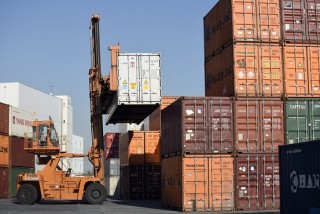Loading
Search
▼ Japan’s Export Volume Falls Despite Weak Yen
- Category:Other

JAPAN WSJ
Japan’s exports grew 4.9% in value in November but fell 1.7% by volume, the latest indication that a weaker yen has failed to stoke exports and real economic activity.
The figures underscore the challenge facing Prime Minister Shinzo Abe, who won a decisive victory in Sunday’s election despite two consecutive quarters of economic contraction—a common definition of recession. A weak yen is a key element of Mr. Abe’s pro-growth policies, which he touts as a way to increase exports and investment at home.
But after two years in office he faces rising doubts about the benefits of a weak currency, and growing complaints about some of its side-effects, which frequently put him on the defensive during this month’s election campaign. Small businesses and consumers, whose wages haven’t kept pace with a sales tax increase and inflation, have been hit by resulting higher import costs, and economists say this may actually be weighing on growth.
The yen touched a seven-year low earlier this month, and is down around 30% versus the U.S. dollar over the past two years. Mr. Abe has asked exporters to take advantage of this by cutting overseas prices and expanding market share, which would increase production and boost the economy. But many exporters haven’t done so, choosing instead to book higher profits in yen terms when they convert overseas earnings.
Export prices last month fell just 1.9% from a year earlier, Bank of Japan 8301.TO -3.16% data showed. Meanwhile, export volumes have been largely flat over the past two years, while their value has increased by around 10%, according to data from the Ministry of Finance.
“Unless prices are reduced more aggressively, Japanese companies, such as electronics [makers], are unlikely to take market share from competitors in other Asian countries,” said Yuichi Kodama, economist at Meiji Yasuda Life Insurance Co.
An unexpected jump in export volumes in October had raised hopes that exporters had started to cut prices. November’s data showed that such hopes were premature.
“There is little indication in the data that the weak yen is boosting export volumes,” said Toru Suehiro, an economist with Mizuho Securities. “It’s increasingly becoming difficult to justify the cheap yen.”
Other factors are holding back export volumes. One is that many Japanese companies have steadily shifted production overseas in recent years—a trend Mr. Abe said can be stalled or even reversed by a weaker currency. And some Japanese products, especially electronics, aren’t as competitive globally as they once were.
The near-term outlook is uncertain, given growing signs of weakness in the global economy. Growth is slowing, for example, in China—Japan’s second-largest export destination. In November, the volume of Japanese exports to China fell 9.8%, while auto exports fell for the first time in 16 months.
Exports to the European Union also fell for the first time in 18 months, with auto exports declining for the first time in a year.
Even the positive impact for Japan of falling oil prices has been offset by the declining value of the yen. Japan recorded an ¥892 billion trade deficit ($7.7 billion) in November, a record 29th consecutive monthly shortfall, due partly to the nation’s increased dependence on fossil fuels since 2011. The Fukushima nuclear disaster that year led to a shutdown of all the country’s nuclear plants.
However, the value of imports fell in November as crude prices tumbled. Oil imports in the month were down 22% from a year earlier.
- December 19, 2014
- Comment (0)
- Trackback(0)

